Interview
Interview: Jim McElvaney
In conversation with Sheffield based artist Jim McElvaney.
Although Jim completed a foundation course at Chesterfield College and went on to study Fine Art at Leeds Met, he didn’t start drawing and painting for some time afterwards and classes himself as a self-taught painter.
Can you talk about your journey into or interest the arts?
I can’t remember a time I wasn’t interested in drawing, it was something I loved from an early age. I had a friend at primary school who was amazing at drawing and he used to create his own zines of characters and monsters he invented. This really inspired me at the time and to be honest still does! I would practice all the time to try and be as good, but I never thought I was, it was a valuable lesson to learn at a young age… don’t compare your work to others!
Do you use a sketchbook? I’m interested in what a sketchbook means to you and your work?, or how people develop their ideas.
I love the idea of worn sketch books stacked on a shelf from over the years full of ideas and lovely drawings, but this is not my reality. I do have lots of sketchbooks, but my problem is I treat them like a piece of work and as soon as I do a page that haunts me I struggle to keep it going. I have more of a sketchbook graveyard than an archive. I love the feel of working in a nice book and I produce some of my best drawings in them but they often get torn out at some stage. It’s funny as I was reading what John Pedder had said in his feature about a sketchbook wall and this is something I also do. The reason for it is I feel less precious over it and find it easier to jot ideas on a scrap of paper than ‘ruining another sketchbook’. It’s nice then to compose them and view them as a piece in their own right.
Your works are observational studies predominantly of faces and heads, which are often distorted or even distressed in appearance. What theses are you exploring through these?
I’m just trying to capture something in a portrait that I see in myself or I can relate to.
Can you talk about your process of working. How do you work, how often, is there a particular pattern?
My process is very sporadic now. I have a partner and a 3 year old so family is my priority. I also work part-time at a University so it’s all about painting and drawing when I can. But over the years my practice and technique has evolved to fit this way of life. I’ve found that my best work is sometimes produced in that 30 minutes between tea and brushing Billy’s teeth! Quick mark making sessions and loose drawings often go on to become something I never expected. Of course I get frustrated at times but I need to remind myself that this is something I will be doing for the rest of my life so there is no need to rush. Instagram can lead you to believe everyone else is painting 24/7 and you’re slacking by taking time out, but I’m sure this isn’t the reality. I think we all need to be a bit more honest, for our sanity!
Do you find the process of creating work relaxing or therapeutic? I’ve become increasingly interested in the relationship of the sketchbook and the work to the artist.
I experience every possible emotion when creating work. That sounds like ‘something an artist would say’ but it’s true. I can pop into the studio for an hour to relax after a stressful day and at first, it’s like ‘yes!’ and then ‘Nooo’ and then ‘everyone must see this!’ quickly followed by ‘I hope nobody ever sees this!’…and so on. With sketchbooks though I do really try to detach myself from that way of thinking and use it as a tool. A way to relax, play or just practice like I did when I was trying to invent monsters at school. Somehow though I always have that demon on my shoulder telling me ‘that’s not good’.

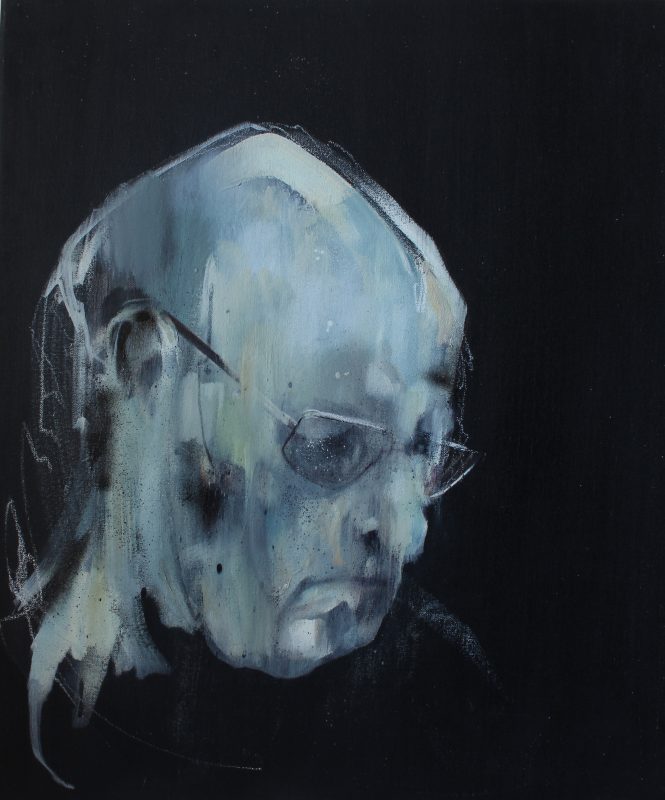
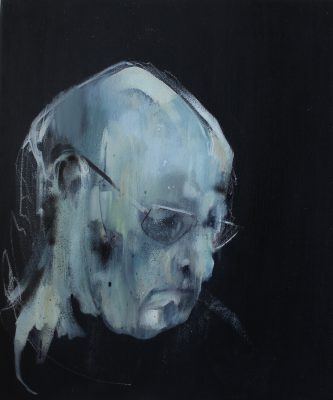
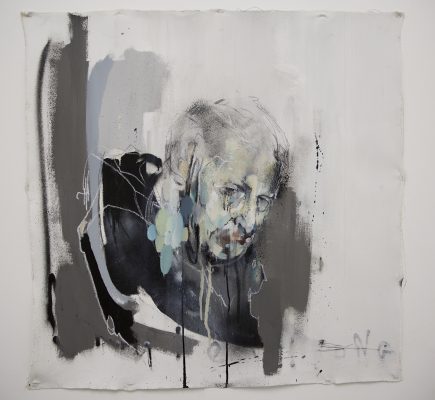
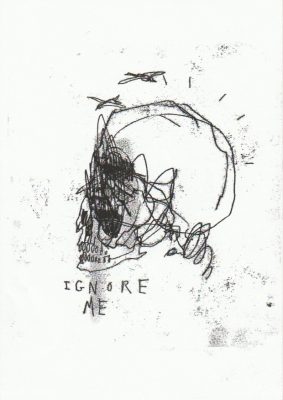
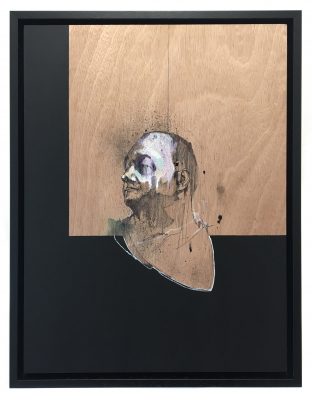
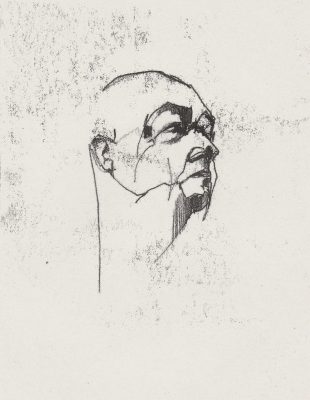
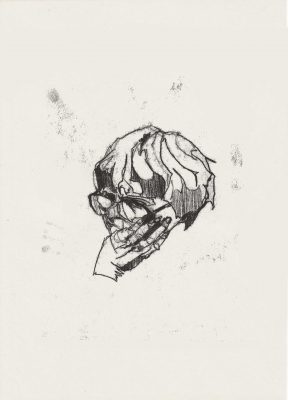
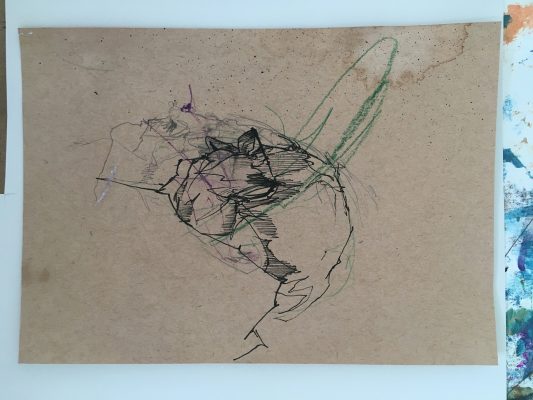
Do you like this artist?
If so, why not write a comment or share it to your social media. Thanks in advance if you can help in this way.